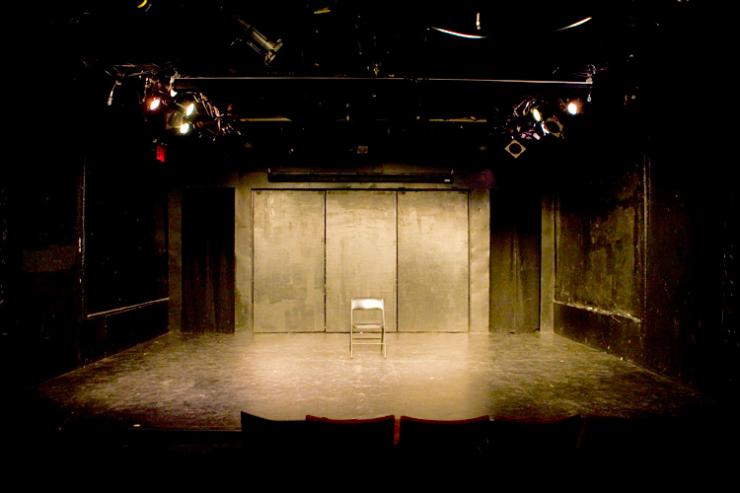Please Don’t Write This Press Invite
To Whom It May Concern:
Hello! As an avid theatregoer and professional, I am familiar with your work and greatly admire your dedication to the community at large. I would love to invite you to my play, The Most Fantastic Show Ever.
“This is the most amazing show I’ve seen in my entire life!”—Theatre Extravaganza (from our reading last year at Hole-in-the-Wall Pub)
Sex! Drugs! Pizza! You’ve never seen a dinner party like this. Get ready laugh your you-know-what off at our sexy cast!
To reserve your ticket, email our awesome company manager [name] at [email]. We’ll even let you bring a guest!
For more information on The Most Fantastic Show Ever, see the attached Microsoft Word doc of our press release.
Live long and prosper,
Jim Bob
If the way you talk about your show is as exciting and as polished as the show itself, we all win.
Congratulations! Your play is getting produced. Your budget is tight, so you can’t afford a publicist, but you know getting reviews are crucial if you ever want to produce this show again. You decide to reach out to critics yourself.
I am your typical small-time indie theatre reviewer. I mostly work with press agents, but occasionally, and especially during festivals, I hear from the artists themselves.
Each year, I receive dozens of unprofessional, inappropriate press invites. In the deluge of emails we theatre critics receive, I understand wanting to stand out. But I see amazing shows all the time selling themselves short by making simple mistakes.
I want to help you do better!
A caveat: I’m no theatrical public relations professional, though my day job is in marketing. But I am the sort of small-time blogger you’re probably looking for to write about your show, so my opinion may count for something here.

The above (fake) email is my attempt to combine the most common mistakes I see in press invites. Let’s break down the problems, shall we?
Impersonal greeting.
As anyone who has ever written a cover letter knows, there’s often no good way to start a letter to someone you don’t know. But don’t make it more awkward than it is. My preference is just to keep it simple: “Dear [First name]” if you’re personalizing the emails, or something generic like “Dear Theatre Professional” if you aren’t.
Acting like you know me.
If there’s a legitimate reason you’re reaching out to me specifically—most likely, I’ve reviewed another one of your shows before—go ahead and mention it. But otherwise, trying to make a personal connection just comes off as weird and unprofessional. This email isn’t about me. I want you to convince me to see this show because it sounds like it will be great, not because you paid me a compliment.
The press quotes.
This isn’t always a bad thing. But given the theatre industry’s tendency to only be interested in world premieres (which we’ve heard plenty about on HowlRound before now), the quotes may be doing more harm than good. Especially if you’ve only had a workshop or a staged reading, or if your only quotes are from smaller blogs, go ahead and skip them.
“Sex! Robots!”
Look, we can talk all day about how to best market indie theatre to a general audience, but you’re writing this email to someone who likes niche theatre already. You don’t need to sell me with sex or clichés. I would much rather you just tell me what your show is actually about—this brief description certainly didn’t.
Not telling me when to come.
If you have preferred press dates, tell me. Otherwise, give me the dates of the full run and let me know I can come to any of them. I shouldn’t have to Google your show to even figure out if I’m available.
Having to email a different email address than this one to reserve tickets.
In a similar vein, you’re adding more work for me, when it really wouldn’t take any more effort on your part to go the simpler route and let me just respond to the sender’s email address to reserve tickets.
Acting like a plus-one is a special bonus.
I think there’s actually a ton to be said about why it isn’t socially acceptable in our society to go to the theatre alone, but that’s neither here nor now. Providing a plus-one to critics is an industry standard.
Attaching your press release.
If I can convince you of only one thing in this article, it’s this: Put your press release in the body of the email. I don’t want to deal with opening your attachments on my phone, and it’s one more step I have to take before I get to why your show is actually good. One-page PDFs aren’t terrible because they may display in an email automatically, but Microsoft Word documents are a killer.
“Live long and prosper.”
If your show isn’t about Star Trek, you don’t need a Star Trek reference in your email. “Thanks” or “Best” will do just fine.
It’s tempting to think of theatre critics as a vast, unknowable force, with the power to elevate your play to stardom or destroy it at their leisure. But here’s the thing: we don’t do this for the money. We do it because we like theatre, and we want to share the great plays we see with the world. We’re your cheerleaders, not your enemy. If the way you talk about your show is as exciting and as polished as the show itself, we all win.


Comments
The article is just the start of the conversation—we want to know what you think about this subject, too! HowlRound is a space for knowledge-sharing, and we welcome spirited, thoughtful, and on-topic dialogue. Find our full comments policy here
I'm not a critic, but I do get tons of invites, and the most common thing I find myself Googling (and cursing about) is THE VENUE ADDRESS! Why do people send invites/promos/etc. with no PLACE??? This drives me nuts. Even if it's a well-known venue, please include it! I can't be the only person who asks myself about certain theaters, "wait, is that on 43rd or 44th?"
Must admit I'm figuratively looking over my shoulder furtively: "It's socially unacceptable to go to the theater alone??" I go to the theater alone at least a couple of times a month. I love going with friends, but if schedules don't mesh, I don't miss the show just because I have to show up by myself. Then again, I am happy to eat in restaurants alone. I have a very social life and the alone moments are actually really nice.
I also thought that was an oddly phrased bit. As a critic I end up going to the theater alone a lot, and I think it's fine. But ya better at least OFFER me two tickets. Cause I might have a date.
Oh, I go to the theater alone all the time, and I'm sure many people in the industry do as well. But to the average theatergoer, going ALONE? The horror. My objection on that front has less do to with whether I'm going to use a plus-one than with acting like bringing a guest is a special favor they're doing for me.
I actually haven't seen that problem with not including addresses, but I'm sure it happens I can certainly see how annoying that would be as well.
Besides feeling instantly and irrationally threatened by the "No Robots" point, I love this article so much. Passing this along to my team immediately.
Best,
Christopher Diercksen
Artistic Director, Team Awesome Robot
Thanks for these tips. One question about the attachments though. I had been advised to attach an editable version of the press release to facilitate a) those places that just provide listings of info, and b) reviewers having easy access (cut and paste) to info such as cast list, urls, etc. Do you find you don't need this access? Is it perhaps good to put the info both in the body of the email AND as an attachment?
No.
Cut-and-paste works just fine from an email, if the reviewer needs that ability.
Attachments take up space, slow downloads, look terrible on mobile devices, and harbor viruses.
That's assuming the PR isn't a .pdf, which some have used in order to keep structure intact over a variety of viewers. So, one would have to send the PR as an editable email.
I don't mind when artists do both, though I personally will never open the attachment. Even if I were just posting a listing, email is just easier. I'll still be able to pull everything I need, without opening another application and with less annoying formatting to get rid of.
Agreed. Both is totally fine. that way its my pick.
I really despise press stuff that makes a big deal of suprise endings. Bob dies? Fine. Bob was an angel? fine. Bob was a figment of someone imagination? Fine. Bob is woman. Fine. I know you think you big suprise ending is really new. Even if it is, I don't care. Logline the plot, and thats good enough.
I once saw three plays in the space of two weeks for which every synopsis was essentially, "It's a family Thanksgiving dinner. Then, DRAMA." (It was November.) They were actually all completely different. It's such a shame that they sounded so interchangeable in the loglines.
Agree wholeheartedly with the no-attachment rule. And, yes, plays say what dates might be available for press. There are some circumstances where a plus-one is impossible for a theater. Just let us know that clearly. Also, PLEASE let us know when production photos will be available. If they are already available, include a link to them.
Ditto on the dates! And don't just give the range- tell us if the run is Thurs thru Sun, if there's a matinee, or an early start on a weekday, or any other pertinent "when" info. I suspect most writers are like me, we want to see and write about nearly everything we can. The deciding factor for me is: do I have an evening free during the run? Highlight the times and dates, make it easy for me to check the calendar right there and then, before I commit to something else.
Ah, the amount of time I've spent googling to find out if they've sent the press photos to someone else, and just forgotten about me...
God. Sourcing photos is the worst. It's like having to do a whole separate job.